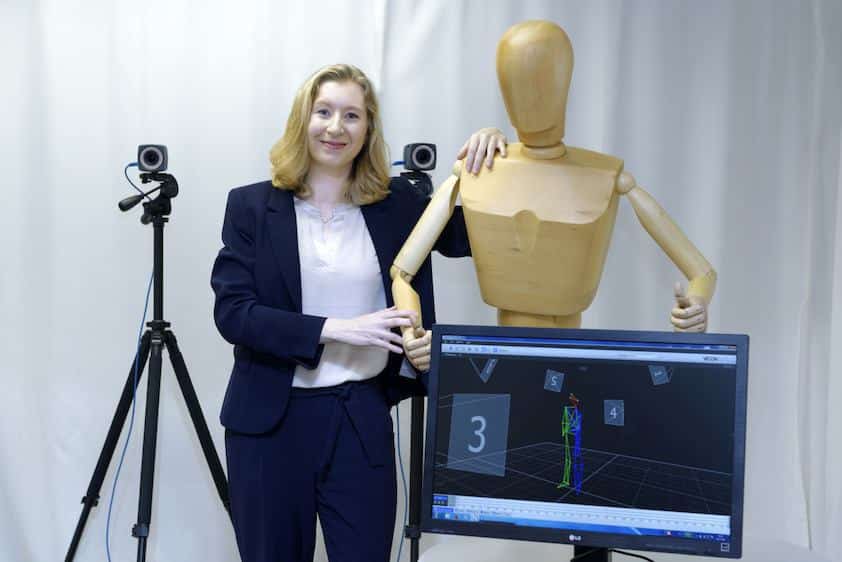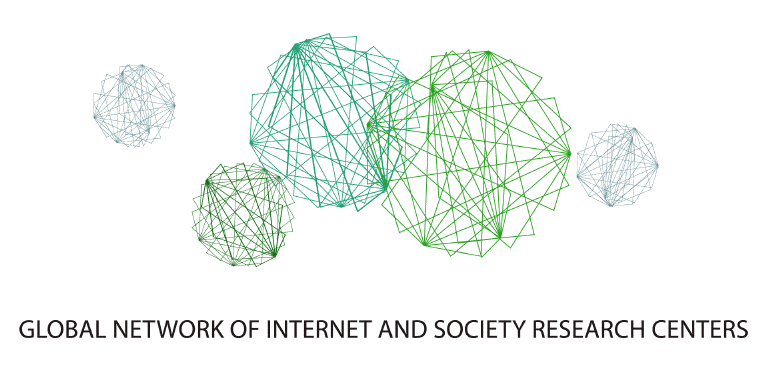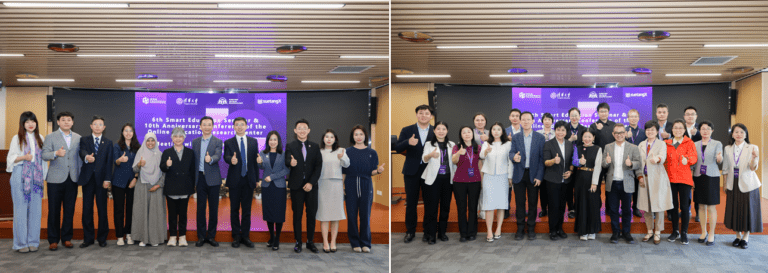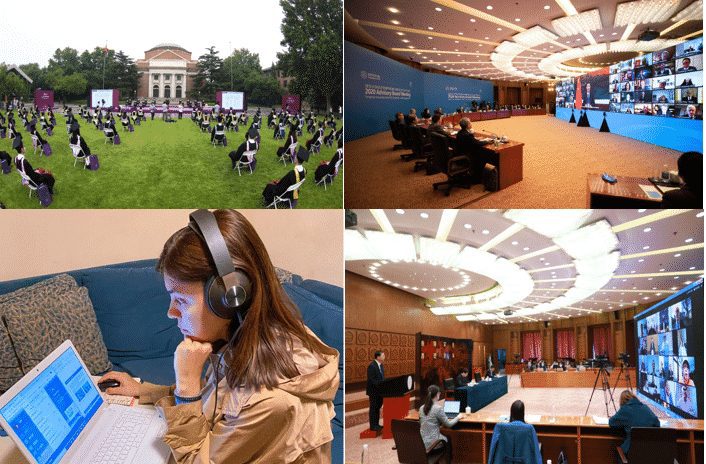Digitalization is bringing about rapid changes in our working world. The COVID-19 pandemic has shown us that we must – and can – transform the way we work and behave. These changes will not only affect technical processes, but also individual employees, organizations, and our society as a whole.
What opportunities and risks can a more flexible and digital academic working world offer? Young researchers’ requests must be particularly favored since they play a crucial role in shaping future society. But this transformation process also requires perspectives to be developed for all other groups of employees too.
RWTH invites renowned representatives from academia and industry to share their ideas on the future of work. The challenges for staff development in science and academia are a key focus of the Staff Development Symposium 2021. The event will be live-streamed for all conference participants. After the presentations and during the panel discussions, participants will have the opportunity to interact and contribute to the event online.
Please note that the talks and discussions will be held in German. For more information about the event, please visit https://www.rwth-aachen.de/go/id/fqadf?lidx=1#aaaaaaaaaafqjjh
Interview With Professor Verena Nitsch
Professor Verena Nitsch, Director of the Institute of Industrial Engineering and Ergonomics at RWTH Aachen University, talks to us about digitization, working from home, and work-life balance in the pandemic in this interview.

Professor Verena Nitsch has been a university professor for industrial engineering and ergonomics in the Faculty of Mechanical Engineering since June 2018. She is also the director of the Institute of Industrial Engineering and Ergonomics at RWTH Aachen University. Her research focuses on the human-centered design of human-machine interfaces and the study of the effects of new technologies on employees and work processes, among others.
Before the coronavirus, many people – even here at the university – only knew of working from home from hearsay.
Will these people be able to continue working from home after the pandemic?
Nitsch: There would certainly be many reasons in favor of this. Working from home eliminates travel, which otherwise causes employees stress and leaves them with less time available. Studies also show that employees work more productively from home and that job satisfaction also increases. But if we do not pay attention to human-centered work design, working from home can also have a detrimental effect on employees. For example, many employees lack the necessary equipment, but also the knowledge, to set up an ergonomic workplace at home and thus prevent health problems. A better work-life balance can also only be achieved while working from home if employees are also granted plenty of flexibility in their choice of working hours and location. Of course, this requires a certain degree of trust from managers, but also greater flexibility in corporate processes. To a certain extent, the pandemic has forced both of these things, but many companies – and certainly many universities – are taking a thoroughly positive view of these developments. I therefore hope that in the future, employees will have more leeway in deciding when and where to work than was the case before the pandemic.
Has the coronavirus also caused other developments besides working from home?
Obviously, occupational safety in the workplace has gained significance with the pandemic. However, this not only concerns hygiene protection measures, but also mental health risks that arise, for example, through social isolation or the lack of boundaries between work and social life. In addition, many companies see an opportunity to reduce business travel costs and the associated environmental footprint, even after the pandemic. The already struggling travel industry is certainly concerned about this development – and exchanges in academia could also suffer if conferences were mostly held virtually in the future. The impact that the pandemic and, in particular, the closure of childcare facilities will have on women’s careers and workloads is also critical. We certainly will not be able to properly assess the aftermath of these developments for a few years to come.
How do you assess the changes in universities instigated by digitalization? And what does this mean for human resources, for example when it comes to balancing family and career?
The pandemic has greatly accelerated the digitalization of teaching and administrative processes at many universities. Many employees have now experienced – albeit forcibly – some of the benefits of digitalization, for example the acceleration of digital processes that previously required postal mail, or more flexible arrangements regarding work location and hours. But in many areas, digitalization is still seen as a “technical” problem for which you just have to find the right software. Yet in order to achieve a sustainable and, above all, people-oriented virtual turnaround at universities, suitable training opportunities must also be developed (leading virtual teams and virtual meetings, virtual onboarding of new employees, conducting virtual employee and conflict discussions, and much more). With the greater freedom that comes with more flexible working hours and locations, it is also ever more important to make employees aware of the physical and psychological hazards associated with a workplace that is not well ergonomically designed.
(The above interview originally appeared on https://www.rwth-aachen.de/go/id/njhfg/lidx/1)






